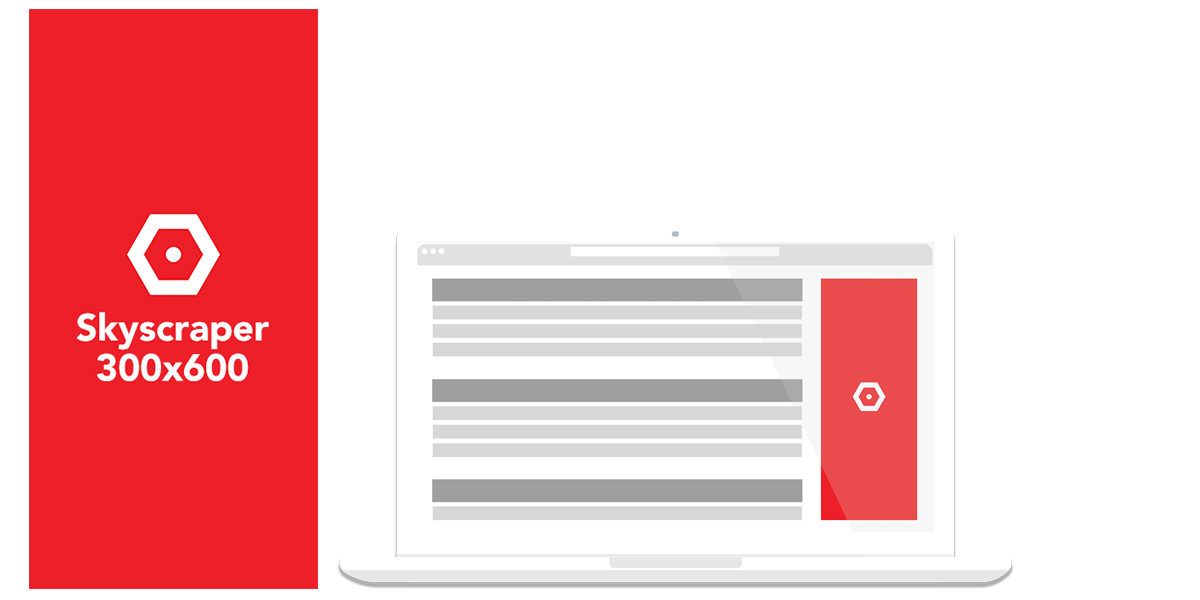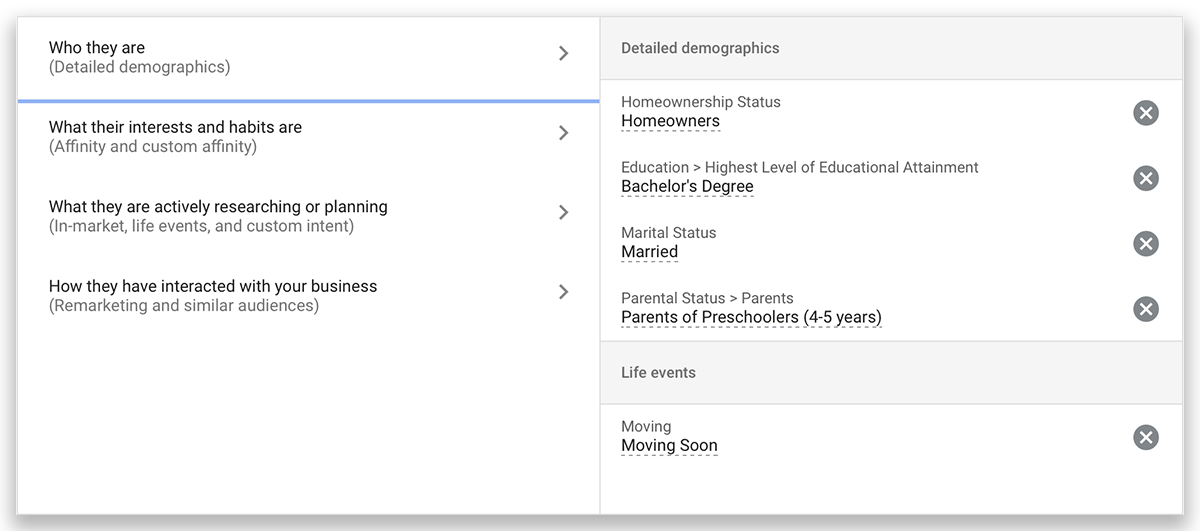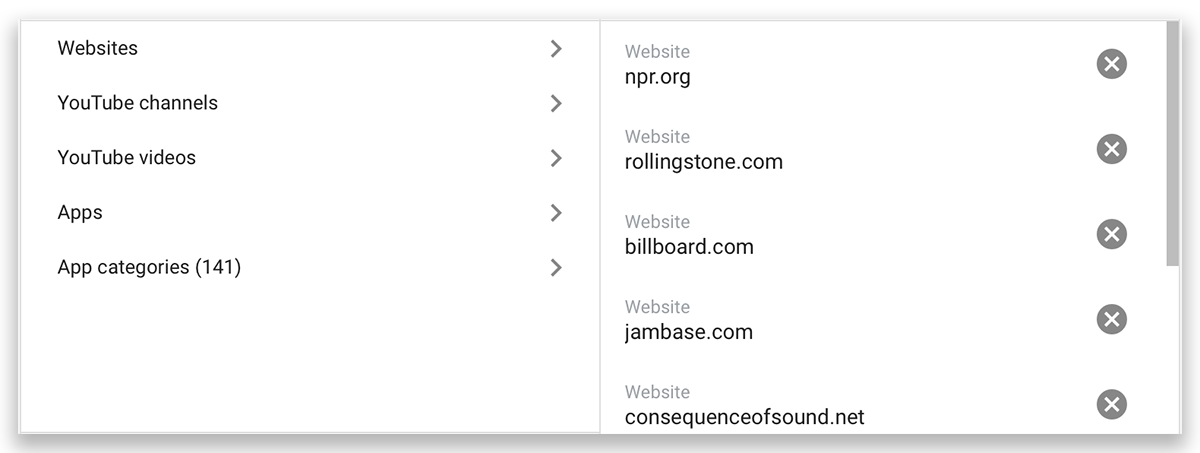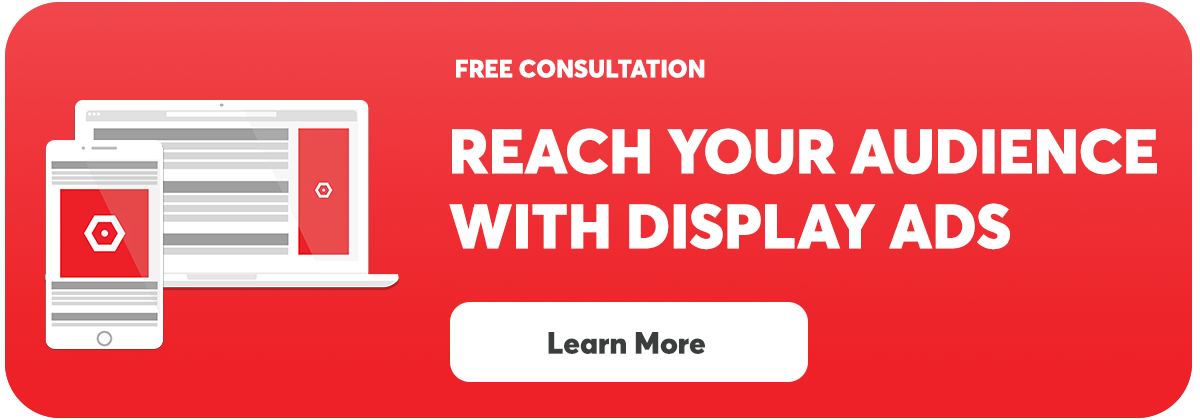You see display advertising every day. In fact, most people see at least 60 display ads each day on average. After reading this post you should have a pretty solid understanding of what display advertising is, where you can advertise, and who you can reach.
What is display advertising
Display advertising is the process of advertising via images & videos on websites, blogs, apps, and video platforms. In the old days you used to have to contact each website publisher one by one. Now, most websites subscribe to a network (at least for their remnant inventory), so you can reach over 90% of the internet on 2 million websites and apps by using one service.
Banner Ads
Display ads come in many formats, shapes, and sizes. The most common banner ad dimensions are below:

Square and Rectangle
- 200x200
- 240x400
- 250x250
- 250x360
- 300x250
- 336x280
- 580x400

Skyscraper
- 120x600
- 160x600
- 300x600
- 300x1050

Leaderboard
- 468x60
- 728x90
- 930x180
- 970x90
- 970x250
- 980x120

Mobile
- 300x50
- 320x50
- 320x100

Audience Targeting
You have the option to target users regardless of what they are browsing on the internet. The Google Display Network (GDN) can reach 90% of the internet on 2 million websites and apps.
Demographic Targeting
Target users by location, age, gender, parental status, marital status, education, etc..
Affinity Targeting
Target users based on interests they have. Google uses information such as browsing behavior and search behavior to define these audiences.
In-Market, Life Events, Custom Intent Targeting
In-Market Audiences allow you target users that have shown signals to Google that they are currently in-market for a specific product or service. For example, you can target users that are actively looking for information about Child Car Seats. Google uses the same signals to define audiences that are likely in certain life events (purchasing a home, getting married, graduating College, etc.).
Remarketing
You can utilize your own information about your customers to ‘remarket’ them. Users who are retargeted to are 70% more likely to convert, so this is a necessary strategy to implement. You can serve ads to users that have visited certain pages of your website or app or performed certain actions. You can also upload a list of your customers & target them across the web.

Content Targeting
Keyword Targeting
Choose specific words or phrases related to what you are advertising. Your ads will appear on websites, apps, and videos related to those keywords.
Topic Targeting
Place your ads on websites, apps, and videos about a certain subject. Topics range from broad (Arts & Entertainment) to very granular (Jazz Music).
Managed Placements
Define specific websites, apps, or videos you want your ad to appear on.

